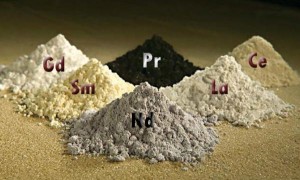H. Sterling Burnett, is a Senior Fellow with the National Center for Policy Analysis, a non-partisan, non-profit research institute with offices in Dallas, Texas and Washington, D.C.
President Obama continues to tout his support for moving to a “clean” energy economy, confidently asserting in his State of the Union Address and subsequent speeches around the country, that his administration’s program of subsidies, government grants and tax breaks for green energy technologies will, reduce our dependence on foreign oil and thus improve the United States’ national security.
Unfortunately, the President is wrong. The U.S.’s thoughtless embrace of green energy technologies is likely to make the country worse off geopolitically.

As a paper released by the National Center for Policy Analysis notes, key components of every green energy technology, wind turbines, solar cells, energy efficient lighting, batteries, you name it, have components that require a small class of minerals known as the rare earth elements, and other rare minerals. Despite their name, these elements are rather abundant in the Earth’s crust, but they are rarely found in economically exploitable concentrations. The exception to this generality is found in the People’s Republic of China.
Indeed, with 96 percent of the global market, China has a de facto monopoly on these rare elements.
By contrast, the world’s oil market is diverse, with dozens of countries producing oil for export. In 2009, the United States imported oil or oil products from 90 different countries.
Recently, China has proven willing to their near monopoly on the rare earths to extract favorable political outcomes from foreign nations.
In September 2010 a Chinese trawler collided with a Japanese coast guard vessel in a disputed portion of the East China Sea. The captain of the fishing boat was arrested by the Japanese. When Japan refused to release the Captain, China retaliated by first limiting and eventually halting exports of rare earth elements to Japan. Japan eventually relented and sent the captain home.
Closer to home, production of photovoltaic cells for energy relies on the rare element tellurium. However, the only tellurium mine that exists on Earth is in China, which is increasingly dominating the market for solar manufacturing. Whereas, in 2003, China produced only one percent of the world’s solar panels by 2009 its share had grown to 38 percent – and in 2010 its share rose to 43 percent. Over the same time period, the U.S.’s share of world solar panel production fell from accounted for 14 percent in 2003, to just four percent today.
Similarly, rare earths are essential to the newest generation of batteries — critical for fuel efficient hybrid and electric vehicles, and the magnets used in wind turbine production. This means that U.S. auto companies and wind turbine manufacturers like GE are, in part, placing their hopes improving their companies’ fortunes on China’s good will.
Sadly, this dependence on China is driven purely by politics not consumer demand. Absent huge government subsidies, grants and mandates, green energy, being more expensive and less reliable than traditional energy production, would not be so much in demand, and thus China would not be in the catbird seat.
The push to replace fossil fuels with renewable energy technologies brings to mind the old saying, “out of the frying pan into the fire.”



